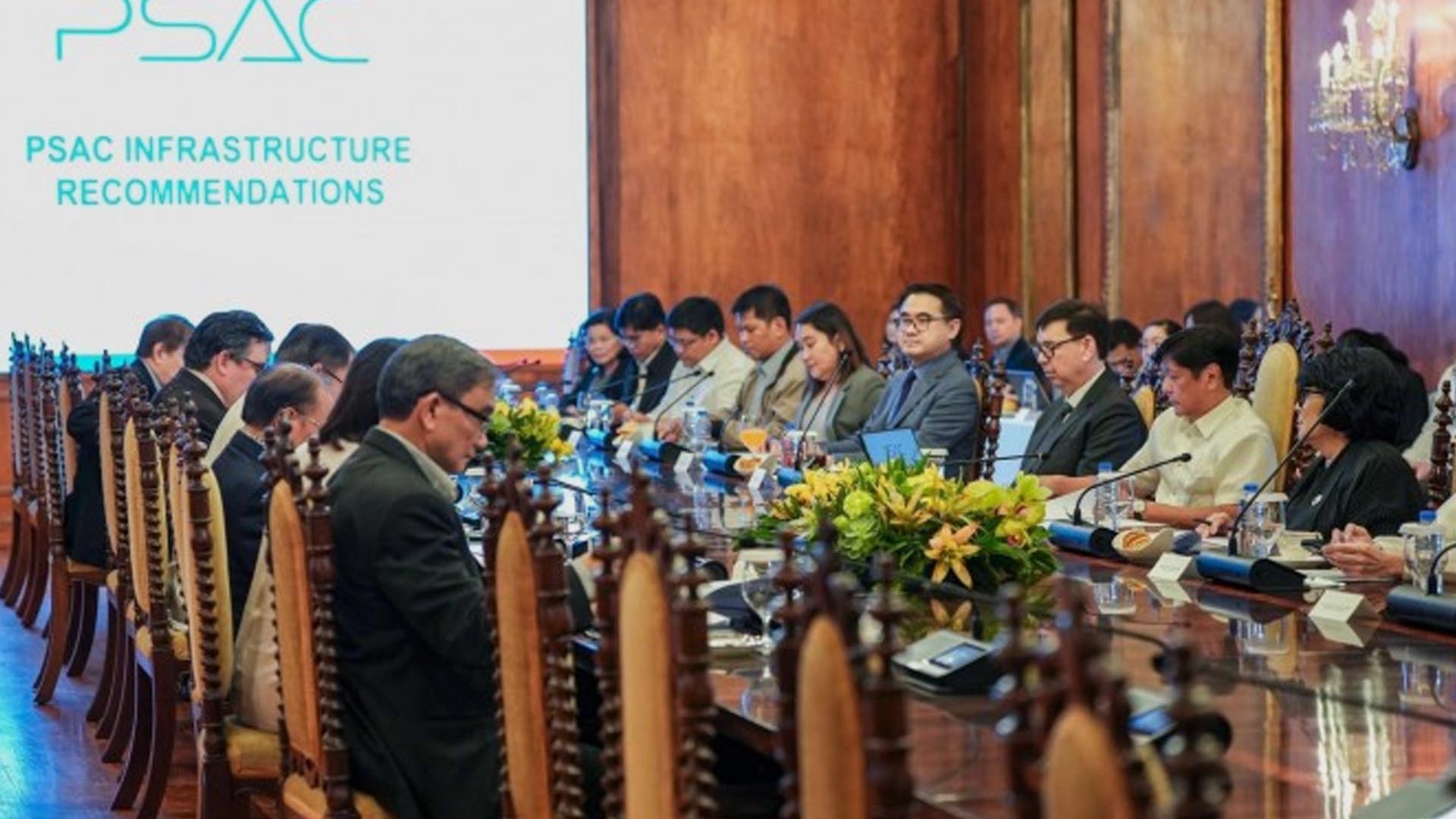President Ferdinand R. Marcos Jr. and the Private Sector Advisory Council (PSAC) have concurred that there is a need to pursue infrastructure projects that could help bring down the power rates, augment water supply, and mitigate flooding in the country.
The matter was raised during Marcos’ meeting with the PSAC – Infrastructure Sector Group (ISG) at Malacañan Palace in Manila on Thursday.
“I sat down with the Private Sector Advisory Council (PSAC) to discuss opportunities to improve the lives of every Filipino family through critical infrastructure that will lower electricity rates, ensure a reliable water supply, and enhance flood protection,” Marcos said in a Facebook post on Friday
“I am grateful to our private sector partners who are committed to helping us achieve these goals. Para sa tuloy-tuloy na progreso sa Bagong Pilipinas (For the continued progress under the New Philippines).”
During the meeting at Malacañan, the PSAC lauded the Marcos administration for enhancing the water distribution system in Metro Manila, Communications Secretary Cheloy Garafil said in a separate statement on Friday.
Citing the PSAC’s remarks, Garafil said the improved pipelines and water systems have enabled the government to reduce systems loss and mitigate flooding in prone areas in Metro Manila.
“During the meeting, the PSAC-ISG stressed the need to ensure a sustainable and safe water supply across the country by replicating the successful model in Metro Manila. They also cited using rivers to mitigate flooding and enhance water distribution,” she said.
The PSAC-ISG for the Water Sector was represented by Ramoncito Fernandez of the Metro Pacific Investments Corp., Garafil said.
Based on the data presented by the PSAC-ISG to Marcos, the Department of Public Works and Highways (DPWH) is currently prioritizing and implementing flood control projects, particularly along the 88 rivers identified by the Department of Environment and Natural Resources (DENR) – Water Resources Management Office.
The DENR has already sent a recommendation to DPWH to use the 88 rivers identified as a priority for multi-use for flood control mitigation, domestic water, and possibly hydropower.
Garafil said Marcos also supports the PSAC’s recommendation to direct local government units (LGUs) to conclude pre-agreements with local construction companies for clearing debris, as well as road and building repairs after disasters.
“President Marcos supported the recommendation, saying having pre-agreements with private entities is a good idea to make government response much quicker,” she said.
Garafil said there was also a suggestion from Philippine Disaster Resilience Foundation (PDRF) president Rene Meily for the DPWH to prioritize the construction of flood control basins in flood-prone areas in Metro Manila, water impounding areas upstream of river basins to reduce volume of water and alleviate flooding and preserve water for irrigation or water treatment plants.
The PDRF, she said, also wanted the Department of Finance (DOF) to direct the Philippine Crop Insurance Corp. to initiate parametric insurance to cover the agricultural and fisheries sectors.
“This is by asking the Philippine Insurance Commission to encourage private insurance companies to offer parametric insurance and for insurance firms and microfinance companies to offer to small businesses,” Garafil said.
She said Meiley is also hoping that the Department of National Defense and the National Disaster Risk Reduction and Management Council would seek a private-public partnership for disaster risk reduction.
She added that the PDRF president also pitched the idea for the DOF and the Philippine Economic Zone Authority to create incentives for companies to invest in areas struck by a disaster, impose zero taxes for a limited period for companies that open facilities in these areas, as well as on the importation of goods and material for locators involved.
The PDRF is the Philippines’ major private sector vehicle and coordinator for disaster resilience. It operates its own Emergency Operations Center in Clark, Pampanga, the first private sector-led national operations center in the world. (PNA)








